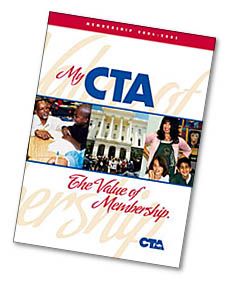CTA seems resigned to losing landmark dues case
by Chris Reed | July 6, 2015 8:49 am
 The U.S. Supreme Court’s decision last week to hear Friedrichs v. California Teachers Association drew considerable national attention[1] as having the potential to deliver a body blow to public employee unions. In the case, an Anaheim teacher challenges the 1977 Supreme Court ruling allowing state laws under which unions charge public employees mandatory “agency fees” to cover the cost of collective bargaining.
The U.S. Supreme Court’s decision last week to hear Friedrichs v. California Teachers Association drew considerable national attention[1] as having the potential to deliver a body blow to public employee unions. In the case, an Anaheim teacher challenges the 1977 Supreme Court ruling allowing state laws under which unions charge public employees mandatory “agency fees” to cover the cost of collective bargaining.
Under that ruling, employees may get a refund on dues specifically identified as going for political purposes. But attorneys for Rebecca Friedrichs argue that the CTA’s history shows all its dues are essentially used for political ends. Friedrichs opposes much of the CTA’s agenda, starting with the union’s strong support of far-reaching teacher job protections and the relatively quick granting of tenure.
The case has the potential to shake up California’s political climate. The CTA and the California Federation of Teachers give more money to candidates and causes than any other entity and are considered to have more influence over the state Legislature than any other groups. Based on what’s happened in other states, the CTA and CFT could lose one-third of all dues if Friedrichs succeeds and mandatory assessments are no longer allowed.
‘Not if, but when’ present law is overruled
What’s striking about this case is that the CTA appears to already assume it’s going to lose. In July of last year, the union distributed a 23-page memo[2] discussing a post-Friedrichs world at a meeting of local district union leaders. Its title: “Not if, but when: Living in a world without Fair Share.” (“Fair Share” is how the CTA describes the law mandating all teachers pay “agency fees.”)
The memo ends with an upbeat tone:
CTA Will Be Ready!
Over the years, CTA has responded to many attacks and crises that have threatened to dismantle our organization and our core belief that every child in California deserves a first-class education. By and far, we have prevailed because of the organizational strength of our membership, the efforts of our talented staff, and our shared commitment to our mission to protect and promote the well-being of our members and to improve the conditions of teaching and learning in California.
Planning, organizing and preparedness will ensure our continued organizational strength and survival and help us adapt to an ever-changing environment.
Nevertheless, the reasons for the CTA’s fatalism are plain. Friedrichs v. CTA got to the Supreme Court in much speedier fashion than many cases. At least four justices supported bringing it before the high court for review, and one has already made his views plain:
Twice, Associate Justice Samuel Alito has stated in opinions of recent years that Abood v. Detroit Board of Ed., the 1977 case that established the constitutionality of fair share fees, was shaky. In a 2014 opinion in Harris v. Quinn, Alito said that precedent was “questionable on several grounds.”
That’s from Politico.
- attention: http://www.politico.com/story/2015/06/supreme-court-public-sector-unions-fees-119585.html
- memo: http://www.eiaonline.com/FairShare.pdf
Source URL: https://calwatchdog.com/2015/07/06/cta-seems-resigned-losing-landmark-dues-case/